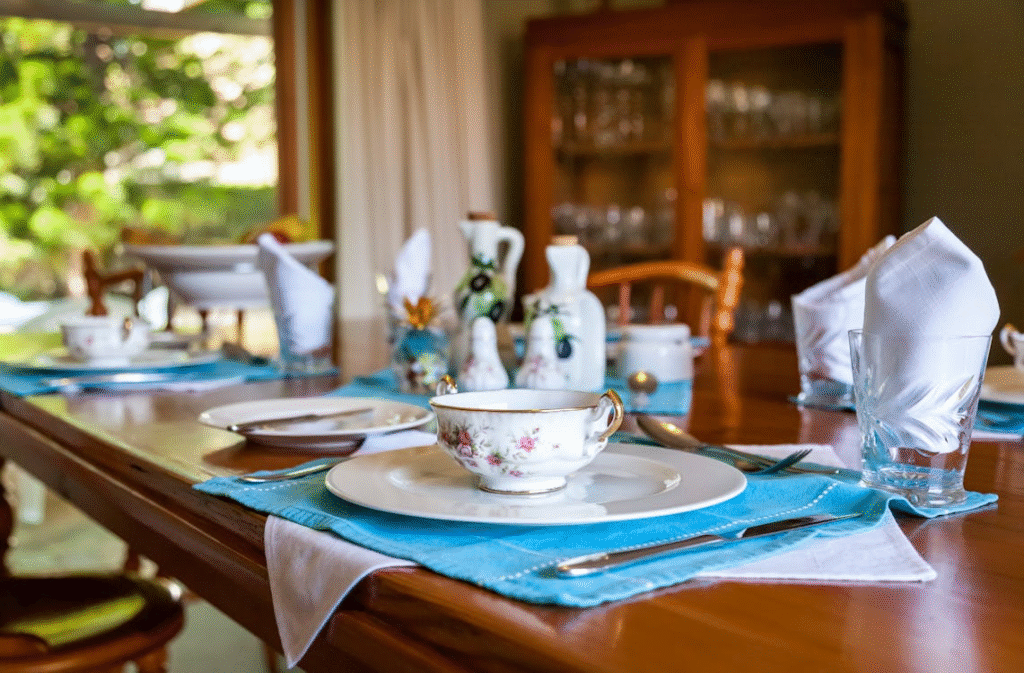A well-rounded adult home tells a story. Not just about personal taste or budget, but about how someone was raised. Certain habits, values, and lessons often show up in the way we set up and care for our spaces. If you were brought up with solid values and practical guidance, it likely reflects in the choices you make in your home. These seven items are strong indicators that your parents gave you more than just a roof growing up, they gave you the tools to thrive. Here is what they might have taught you without ever needing to say a word.
A Fully Stocked First Aid Kit

If you keep a complete first aid kit somewhere easy to find, chances are your parents taught you that safety matters. A good kit includes more than just a few band-aids and an old bottle of aspirin. Adults who have gauze, antiseptic wipes, medical tape, tweezers, pain relievers, allergy meds, and even an emergency blanket are showing preparedness that stems from early guidance. This simple item reveals a mindset of responsibility. Keeping one shows you understand accidents happen and it is smart to plan ahead. Being raised in a home where emergencies were calmly handled and first aid was explained can lead to a habit of protecting yourself and others. You are not waiting until something goes wrong to get ready, and that is a sign of mature, learned behavior.
Real Tools for Real Repairs

A hammer, measuring tape, screwdrivers, and a level may not seem sentimental, but they often represent a strong foundation. If your parents showed you how to fix things instead of immediately replacing them, you probably grew up valuing resourcefulness. Adults who own tools are more likely to hang art properly, fix leaky taps, and install shelves themselves. These practical skills reflect a childhood where self-reliance and learning by doing were common. Keeping tools also suggests pride in maintaining what you own. It shows patience, problem-solving, and hands-on wisdom. Even if you do not use them daily, the fact that you own a toolbox and know where it is means your upbringing encouraged independence and long-term thinking.
A Library of Actual Books

Having a shelf of real books in your home, even if you mostly read online, says something deep about how you were raised. People with books around tend to value knowledge, curiosity, and imagination. Whether your collection includes classic literature, cookbooks, or biographies, it shows that you see reading as important. Many adults who keep books were raised in homes where reading was part of daily life. They saw parents reading, had bedtime stories, and went to libraries often. Studies have shown that exposure to books during childhood helps with empathy, memory, and language development. If you instinctively keep books close, you likely grew up in a home that respected learning for its own sake, not just for school.
A Thoughtfully Set Dining Area

You do not need fine china or expensive chairs, but having a clean, organized space to eat meals shows a lot about your upbringing. It means you see value in sitting down, sharing food, and making mealtime intentional. This habit often starts young, with families that eat together and use dinner as time to talk, connect, and slow down. Adults who continue this tradition by setting the table, turning off the TV, and eating without distractions tend to have strong social and emotional intelligence. This space becomes more than furniture, it is a sign of respect for routine, nutrition, and relationships. Your parents might have taught you to say grace, wait for others to start, or clear your own plate. These small habits often grow into bigger values around gratitude and togetherness.
Something That Has Been Handed Down

If you have a quilt from your grandmother, a recipe box from your dad, or even a piece of old furniture, your home carries emotional weight. People who keep family heirlooms or sentimental items usually grew up with strong family identity. They were taught to value history, tradition, and storytelling. These items may not be fancy or valuable, but they connect you to something bigger. Keeping them shows emotional maturity and the ability to care for what matters. It also points to a home life where memories were preserved and ancestors were honored. Having something that was passed down means you were probably encouraged to ask questions, understand your roots, and carry your family’s legacy forward.
Cleaning Supplies You Actually Use

Owning cleaning supplies is easy. Actually using them is what counts. If your home is clean and stocked with the right tools, your parents probably taught you the importance of hygiene and order. Adults who keep disinfectant sprays, sponges, glass cleaner, vacuum bags, and eco-friendly products show respect for their living space. A clean home is often a sign of self-discipline and pride. Parents who made chores a regular part of childhood usually instilled more than just neat habits. They taught accountability, consistency, and the value of hard work. Adults who dust their shelves and mop their floors without being told are often the product of households where doing your part was the norm.
A Dedicated Spot for Important Papers

Whether it is a drawer, a binder, or a small home safe, keeping essential documents in one place is a major sign of adult thinking. This includes birth certificates, tax records, insurance policies, and passports. People who do this were likely raised in homes where organization was modeled and expected. Being taught how to file paperwork, balance bills, or review contracts early on leads to a sense of control and preparedness. It also reflects the value of planning for the future and respecting responsibilities. If you know where your documents are at any given moment, it likely means your parents taught you how to stay ahead, not scramble in a crisis.
Final Thoughts
The way you arrange and fill your home can reveal more than just your decorating style. It often reflects the values, habits, and priorities that were passed down by your parents. These seven items are not about trends or appearances. They are about being prepared, being present, and being connected. If you recognize yourself in this list, it is likely because you were taught to think beyond yourself and beyond the moment. Your parents may not have been perfect, but they gave you tools that matter. And now, your home tells the story.
Read More: 8 Toxic Phrases That Reveal You Were Raised by Emotionally Manipulative Parents
Disclaimer: This article was created with AI assistance and edited by a human for accuracy and clarity.


